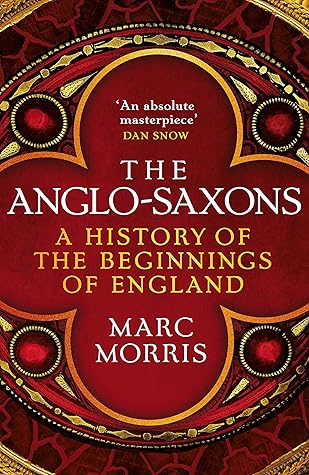More on this book
Community
Kindle Notes & Highlights
by
Marc Morris
Read between
September 20 - September 20, 2021
On 8 June, a band of what the Chronicle calls ‘heathen men’ landed their ships on the island of Lindisfarne, plundered the monastery there, and slaughtered many of the monks. Alcuin described in horror how the altar of the church was spattered with blood and the tombs of the saints were trampled underfoot. He also reveals that, as well as stealing the abbey’s precious ornaments, the visitors seized some of the younger members of the community and led them off into captivity, presumably to be sold as slaves. The ‘heathen men’ who attacked Lindisfarne in the summer of 793 are better known today
...more
Ælle was subjected to the horrific ‘blood eagle’, in which the victim’s lungs were removed from his broken ribcage and draped around his neck, so they resembled an eagle’s folded wings. Those who like such grisly history will be disappointed to learn that there is no contemporary evidence for the practice. It seems to be a flight of imagination based on a debatable line of eleventh-century verse, which might have meant nothing more than Ælle’s body was left to be eaten by eagles.
it is only in Æthelred’s reign that we first start to hear about reeves who were responsible for a whole shire: shire-reeves, or sheriffs. In later medieval literature – the tales of Robin Hood, for example – sheriffs are a byword for financial extortion, which is no surprise, because from the first a major part of their role appears to have been to extract money from people on the king’s behalf.
The fortunes of Bristol were founded on the export of English slaves, centuries before the town’s better-known involvement in the trading of Africans across the Atlantic.
The sun rose on the morning after the battle to reveal a scene of sickening carnage. ‘Far and wide,’ wrote William the Conqueror’s chaplain, William of Poitiers, ‘the earth was covered with the flower of the English nobility and youth, drenched in blood.’ The most notable casualty was King Harold, who had been hacked to death by a group of Norman knights, his body mutilated almost beyond recognition.
This replacement of England’s ruling class had profound consequences, for the Normans had different ideas about the way society should be regulated. One major innovation was the castle, a new and brutally effective form of fortification that had been developing in Francia since the turn of the millennium. ‘They built castles far and wide throughout the land’, said the Anglo-Saxon Chronicle in 1067, ‘oppressing the unhappy people.’
William the Conqueror banned the export of slaves out of Bristol and emancipated those he encountered in Wales. Domesday suggests that during his reign the unfree population fell by a quarter, and by the mid-twelfth century it had dwindled to almost nothing.


